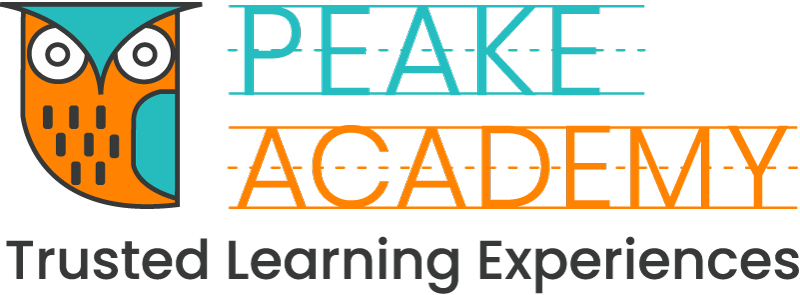Growing Together: How to Adapt Your Preschool Plan to Fit Your Child’s Evolving Needs
The preschool years are a whirlwind of change, not just for children but for parents too. As your child grows, their needs, interests, and abilities change right along with them. It's important to recognize that the preschool plan that worked at the start of the year might need to evolve to keep up with your child's development. By continually adjusting your approach, you can keep your child engaged, challenged, and supported as they grow. Here’s how to adapt your preschool plan to fit your child’s evolving needs and ensure ongoing growth and success.
1. Observe and Reflect on Your Child’s Development
The first step in adapting your preschool plan is to regularly observe and reflect on your child's development. Pay attention to the skills they’re mastering, the activities they enjoy, and any challenges they might face. Are they suddenly interested in new subjects? Are they ready for more complex tasks? Or perhaps they're finding something difficult that used to come easily?
Taking the time to observe your child's behavior and progress helps you identify where they might need more support or new opportunities for growth. Keeping a journal or notes on these observations can guide your decisions when adjusting your preschool plan.
2. Adjust Learning Activities to Match Developmental Stages
As your child grows, their cognitive, motor, and social skills will evolve, and their learning activities should evolve with them. A three-year-old might love simple puzzles and basic counting games, but by the time they’re four, they may be ready for more challenging puzzles and early math concepts.
Keep your child engaged and challenged by gradually introducing new activities that match their developmental stage. If they’re ready to move on from a particular activity, don't hesitate to introduce something more advanced. If they’re struggling with a new concept, it’s perfectly fine to slow down and revisit simpler activities to build their confidence and skills.
3. Foster Independence with Age-Appropriate Responsibilities
Children naturally seek more independence as they grow, and your preschool plan should support this by incorporating age-appropriate responsibilities. Start with small tasks like tidying up toys, helping set the table, or choosing their own clothes.
As they master these tasks, gradually introduce more complex responsibilities. This not only helps them develop practical life skills but also boosts their confidence and sense of autonomy. Encouraging independence in preschool lays the groundwork for a lifelong love of learning and a strong sense of self.
4. Embrace Flexibility in Your Routine
While routines are essential for providing structure and security, it’s equally important to embrace flexibility. As your child’s needs and interests change, your daily schedule might need to adapt. For instance, if your child suddenly becomes fascinated by dinosaurs, dedicate more time to dinosaur-themed activities or books. If nap time becomes a struggle as they grow older, consider replacing it with quiet time.
Flexibility in your routine allows you to respond to your child’s current needs and interests, keeping them engaged and excited about learning. It also shows them that learning is a dynamic process, adaptable to their pace and curiosity.
5. Incorporate Social and Emotional Learning
As your child's social world expands, so do their social and emotional needs. Preschool is a crucial time for developing skills like empathy, cooperation, and emotional regulation. Include activities in your preschool plan that promote social and emotional learning, such as role-playing, group activities, and discussions about feelings.
As your child grows, these activities can become more complex, encouraging deeper reflection and understanding of social dynamics. Supporting your child’s social and emotional development will help them build healthy relationships and navigate their world with confidence.
6. Seek Feedback and Involve Your Child in the Process
Your child is the best source of insight into what’s working and what isn’t in your preschool plan. Regularly seek their feedback by asking questions like, “What was your favorite part of today?” or “Is there something new you’d like to try?” Involving your child in planning empowers them and provides valuable insights into how to adjust your approach.
Additionally, be open to feedback from other caregivers, teachers, or preschool instructors who interact with your child. They might notice things you haven’t and offer valuable suggestions for adapting your plan to better meet your child’s needs.
Adapting your preschool plan to fit your child’s evolving needs is an ongoing process that requires observation, flexibility, and a willingness to embrace change. By regularly adjusting your approach, you ensure your child remains engaged, challenged, and supported throughout their preschool years. Remember, the goal isn’t just to prepare your child for the next stage of learning but to nurture a lifelong love of growth and discovery. By growing together, you and your child can make the most of these formative years, setting the stage for continued success and happiness.
Free Resource
Thank you for reading this content. And if you loved this post, please be sure to join our Parent Advisor Facebook group where we share more insights and community.
Adapt your preschool plan as your child grows and evolves with our helpful tips! Read the article and receive FREE Growing Together Affirmations to support your child's journey every step of the way.
Everyone deserves self-care
The same goes for busy moms like you. So let's do it together and create a healthy habit!
Join the 30-Day Happy Mom Challenge Today!
Visit our Parent Advisor and The Buzz Blogs to learn more about related topics and parenting tips. You are welcome to join our private Parent Advisor Facebook group. It’s a growing community of parents and preschool teachers where you can learn and share more parenting tips.
Related Blogs
Kindergarten Readiness: 7 Tips for Preparing Your Preschooler for a Successful Start
Empowering Your Preschooler: Expert Tips for Encouraging Independence and Confidence
Fun Ideas for Social-Emotional Learning (SEL) at Home or in the Classroom
Kindergarten, Here We Come! Prepare your Preschooler with these 10 Essential Skills







